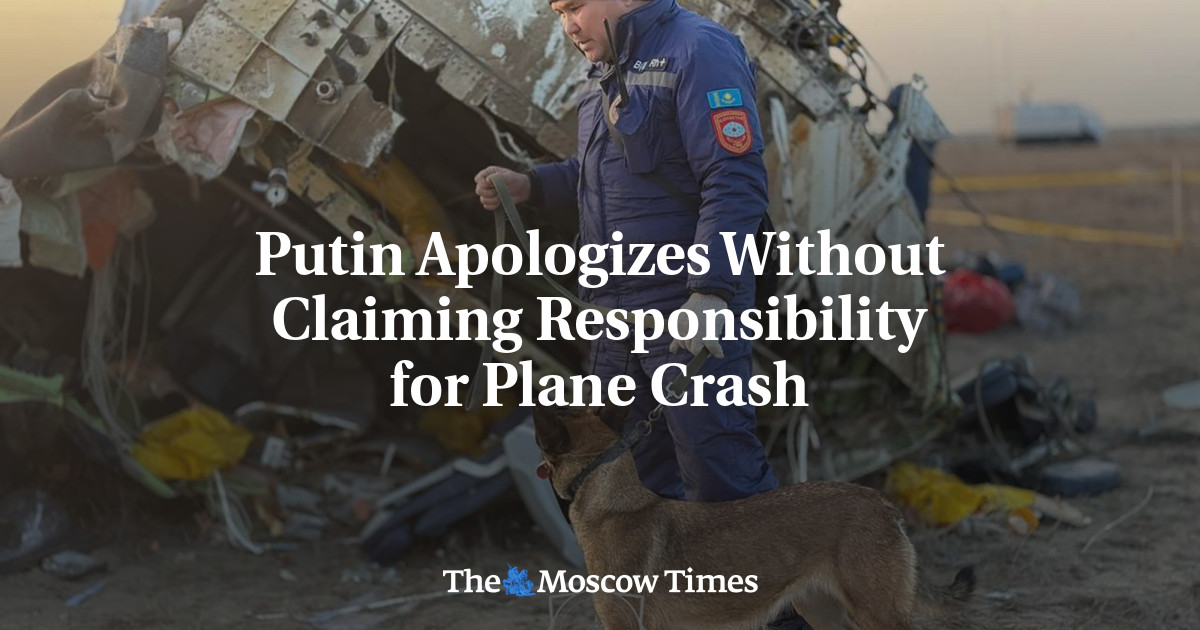KYIV, Ukraine — “It’s not safe, it’s not safe. We need to go now,” a woman yelled at people running to shelter on Maidan Nezalezhnosti in the heart of the Ukrainian capital as the sounds of air defenses thundered overhead.
As the first sirens blared throughout Kyiv at 9:52 a.m., many residents moved to shelters, metro stations and basements. Others carried on with their routines, weary of the concrete basements and noisy underground halls — and disruptions to their daily lives.
Over two years into Russia’s full-scale invasion of Ukraine, these sirens are a regular occurrence. Monday would be very different, with at least 22 people killed in the capital alone and another 14 victims elsewhere in Ukraine, along with 136 wounded.
About half an hour after the first sirens, the first sounds of outgoing anti-missile systems echoed in the city center — indicating the gravity of the situation.
Those still on the streets dashed to the nearest shelter, realizing the severity of the threat. White streaks from Kyiv’s air defense systems crisscrossed the sky, followed by thunderous booms.
In the Maidan metro station, hundreds of people huddled on the ground, waiting for the attack to end. Children played on their parents' phones while adults engaged in anxious conversation, trying to pass the time.
Above ground, dozens of Russian missiles pummeled central Kyiv.
As a young girl emerged from the underground to cross the street, multiple explosions erupted. Terrified, she ran back in tears. A cloud of black smoke rose behind the Maidan.
Two kilometers away from the city center, a Russian missile struck Okhmatdyt, Ukraine’s premier children’s hospital. The piercing sirens of ambulances and fire trucks filled the streets as smoke rose above the city.
At the hospital, hundreds of staff, civilians and emergency workers began digging through the rubble, desperately attempting to rescue doctors and children trapped beneath the debris.
Valentina, a Ukrainian doctor, was operating on a young girl when the first explosion hit. She explained that it was impossible to halt the surgery.
As the hospital was being evacuated, surgeons had to either continue their operations or close up their patients as quickly as possible.
Valentina’s cardiology unit, located roughly 50 meters from the blast site, sustained significant damage.
Most of the windows and the building’s facade were destroyed, but casualties were surprisingly low.
“Many people had acute stress reactions,” she said, “and we needed to help everyone here before the rescuers arrived.”
Valentina and her team managed to complete the surgery and evacuate to safety before the second blast hit. Her patient survived both the surgery and the trauma.
The intensive care unit bore the brunt of the blast. As smoke poured from the remnants of the roof, dozens of volunteers formed a human chain, passing along bricks, debris and broken furniture. Firefighters worked tirelessly to extinguish the flames.
Dozens of injured civilians, many covered in blood, wandered around in a daze, drinking bottled water provided by volunteers. Medics struggled through the chaos to attend to the injured, while many volunteers closer to the blast site suffered from smoke inhalation.
Dinara, a volunteer in her mid-20s shoveling debris, said that although she did not know anyone at the hospital, she left her job on the other side of the city immediately upon hearing about the blast.
"An attack on a children’s hospital is unthinkable," she said, explaining her compulsion to help.
Volunteers flooded the area from all directions, carrying water bottles, first aid supplies and food. Some arrived with cars full of items they had just purchased from local supermarkets. Two teenage boys hauled a shopping cart full of water bottles down the stairs. Beyond the hospital compound, hundreds more rushed toward the hospital with essential supplies.
Emergency workers at the blast site worked tirelessly to evacuate the building, pulling out both survivors and the deceased.
Survivors received immediate medical attention, while the dead — children, hospital staff and parents — were laid on the grass under police guard.
Nearby, hospital staff salvaged vital medical equipment, including infant incubators and hospital beds, from the wreckage.
The scene was strewn with broken furniture and blood-stained lab coats. Hospital staff, some smoking and others crying, stood in shock. One woman sat on the ground, her face in her hands, sobbing uncontrollably.
When another air raid siren blared just before 1:00 p.m., emergency crews started evacuating volunteers, medical staff and the press, fearing a second strike aimed at those on-site. Although two more outgoing air defense rockets were heard, a second strike did not occur.
As the death toll emerged, it became clear that the attack on Okhmatdyt was one of the deadliest assaults on Kyiv since the beginning of Russia's full-scale invasion in February 2022. An army major on-site reported at least 20 deaths, with the toll expected to rise.
"The whole world must act as decisively as it can to put an end to Russian air strikes. Murder — this is what Putin brings. Only together can we achieve true peace and security," Ukrainian President Volodymyr Zelensky wrote on his Telegram channel.
Moscow, meanwhile, claimed that the missile damage in Kyiv was caused by Ukraine’s own air defense systems, saying its forces struck their “intended targets” of defense industry and military installations.
But for Kyiv and its residents, July 8 will likely be remembered as one of the most painful and solemn days of the war.
… we have a small favor to ask. As you may have heard, The Moscow Times, an independent news source for over 30 years, has been unjustly branded as a "foreign agent" by the Russian government. This blatant attempt to silence our voice is a direct assault on the integrity of journalism and the values we hold dear.
We, the journalists of The Moscow Times, refuse to be silenced. Our commitment to providing accurate and unbiased reporting on Russia remains unshaken. But we need your help to continue our critical mission.
Your support, no matter how small, makes a world of difference. If you can, please support us monthly starting from just $2. It's quick to set up, and you can be confident that you're making a significant impact every month by supporting open, independent journalism. Thank you.
Continue
![]()
Not ready to support today?
Remind me later.
 (1).png)
 5 months ago
33
5 months ago
33













